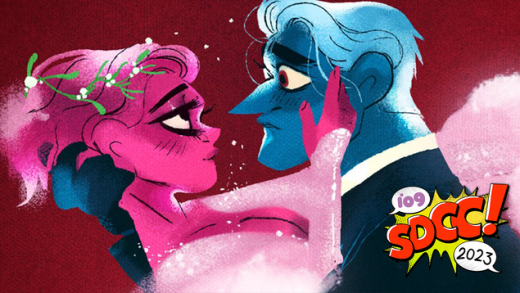JANUARY
Theophanies by Sarah Ghazal Ali
Selected as Editors’ Choice for the 2022 Alice James Award, Theophanies explores the matriarchs of the Abrahamic faiths, weaving aching narratives of mothering and daughtering, faith in the divine and in the body. Sarah Ghazal Ali’s lyric drips with reverence, whether it is for language or for subject. There is a constant oscillation in her metaphor, an intriguing push-and-pull. In the opening poem “MY FAITH GETS GRIME UNDER ITS NAILS,” she writes, “A woman crowned / holy is a calamity,” or in “TEMPORAL”, a poem dealing in doubles, “I unlimb my dolls, braid and section / their stiff hair”, or the mirrored construction in “Spectacle”, “Who consoled Hajar consoled who?”; these balancing acts let the harsh further the tender, a thread that pulls the collection forward. Ali’s speakers’ classical voices are genuine in their vulnerability—what results is an immersive, meditative read. This debut is confident and assured—it is almost impossible to believe it is Ali’s first book. What a beautiful way to begin the year.
 Root Fractures by Diana Khoi Nguyen
Root Fractures by Diana Khoi Nguyen
Readers may remember Diana Khoi Nguyen’s outstanding debut collection Ghost Of, most memorable for its family photo cut-out visual poems in its exploration of grief and migration. Root Fractures builds on the themes of Nguyen’s debut; mourning a brother who killed himself, mourning familial relationships in the midst of such a trauma, with the cut-outs returning once again accompanied by a strong array of prose poems. On a recent reread of Ghost Of, I was especially attuned to the bluntness of Nguyen’s work, never hiding rough reality behind flowery words or romanticizing traumas in the diaspora; there was a density to her work that egged on intensity, urgency. This quality returns, although in a different form—the directness remains, attached to a lighter touch, perhaps best illustrated by this thesis early in the book: “‘In my country,’ my mother says, ‘a child shows love by listening to her parents without questions.’ But what if the parents are wrong?” This line in the first of poems with the recurring title “Đổi Mới” compelled me like no other; to dare to counter the dutiful nature of the immigrant daughter within the text of a poem, so succinctly and directly, then return to this question throughout yet another strong collection—more innovative work from Nguyen, in a different way than before.
FEBRUARY
 Exploding Head by Cynthia Marie Hoffman
Exploding Head by Cynthia Marie Hoffman
I am very partial to prose poems, as well as work that engages rigorously with mental illness, so of course Cynthia Marie Hoffman’s stunning “memoir-in-prose” about living with OCD was an immediate draw. Often, when reading formally tight projects, I expect a break in the regularity towards the end—it did not come, and the book was made better for it. The prose poem is a valuable vehicle for many approaches—my favorite is the game of association that is stronger because of how the lines run into each other in that block-formation; there’s also the sort of urgent, anxious, run-on that is so well served by the visual crowding. Hoffman’s lyric carries both of these vehicles so well; the intrusive, obsessive thoughts brought on by OCD build and collapse startling metaphors, letting the poems’ uneasy surrealism echo the worlds created by illness. Hoffman writes, “What did you think your life would become? Tonight, the moon with barely a face formed on it.”; eerie and beautiful, through and through.
MARCH
 The Moon That Turns You Back by Hala Alyan
The Moon That Turns You Back by Hala Alyan
Hala Alyan’s fifth poetry collection, following 2019’s The Twenty-Ninth Year, does not disappoint. Keeping in line with her past work, the poems in The Moon That Turns You Back demand attention from the reader—focused in their voice, holy in their devastation. The formal turns she delivers are a new leaf; starting with the opening poem, “INTERACTIVE FICTION: HOUSE SAINTS,” a type of contrapuntal that grants the reader several different paths to read down. The poem begins, “I want the miracle that makes me ordinary” breaking to “to kiss” / “to resurrect” / “to leave”. The columns split then come back together down the page, a pseudo choose-your-own-adventure. These interaction fictions, recurring throughout the collection, feels like a marriage of her crafts—Alyan is also the author of two multigenerational multi-POV novels, and here she transforms this narrative structure into poetic form. The poems that ask for narratives on top of narratives complement the poems that utilize redaction, like in “SLEEP STUDY NO. 3” “Nothing will protect us from the [ ]. Not even your / mother’s [ ]”. I appreciate the innovations that Alyan pulses into this collection alongside the work that feels familiar, like the use of speculative–”[POLITICAL] DIALOGUE,” a poem that made me cry most notably after pages of other poems that made me cry presents a phonecall with a loved one, ending “Never mind there never / was a son. I still have her voice. She still calls / when I’m not expecting. Keif ibnik, she says. / What could I say back? He’s good, I tell her. / He’s crawling, Mashallah, mashallah. We / praise how much he’s grown.” The Moon That Turns You Back is Hala Alyan at her best; how lucky we are for such an extraordinary Palestinian American poet to be writing today.
 Ward Toward by Cindy Juyoung Ok
Ward Toward by Cindy Juyoung Ok
Cindy Juyoung Ok’s debut moves through spaces seamlessly—psych ward, hospice care, nation upon nation—and unites them through an impressive articulation of their violences. Ward Toward plays well with new and established form—“Composition of a Raft” giving us the duality of “That summer we learned / that exile is always story—,” or “That summer we learned to bargain with gods, / that exile is always story—”, tender in its care for the land, presumedly Palestine. There’s “Before the DMZ” an effective visual piece, taking on the shape of the divided Koreas; “Gen-/erally no/ one recalled where / they had been separated” so cleverly constituting a border as the verse breaks. Cleverness is a signature of Ok’s voice—a tack of irony or of farce attached to the various violences she renders. This is signaled by the opening poem, “Three Act Comedy,” irreverent in its opening line, “How dare you question my Eastern mythical status, / which I earned with bells the moon will never hear”, smart and confident to get the reader going. The diversity of form and invention that saturates the book is impressive, of course, though as always I am drawn to the prose poems—“Laugh Track,” stark in its length and blockiness in between slimmer stanzaic pieces is an expert encapsulation of the violent absurdities of mental health care; it begins, “I watched the half-hour 90s sitcom Seinfeld in chunks of 37 and a half minutes exactly; one full episode and a second minus its final act. Because the show follows a strict formula, this was not such a difficult loss.” How sharply she builds an untethered monotony, a shuffling of time and logic that carceral spaces inspire—this poem, alongside “The Orders,” a numbered poem that grants a variety of narratives depending on how the reader approaches the list, are wonderful complements, indicative of the work the collection does as a whole.
The post Must-Read Poetry: Winter 2024 appeared first on The Millions.
Source : Must-Read Poetry: Winter 2024










